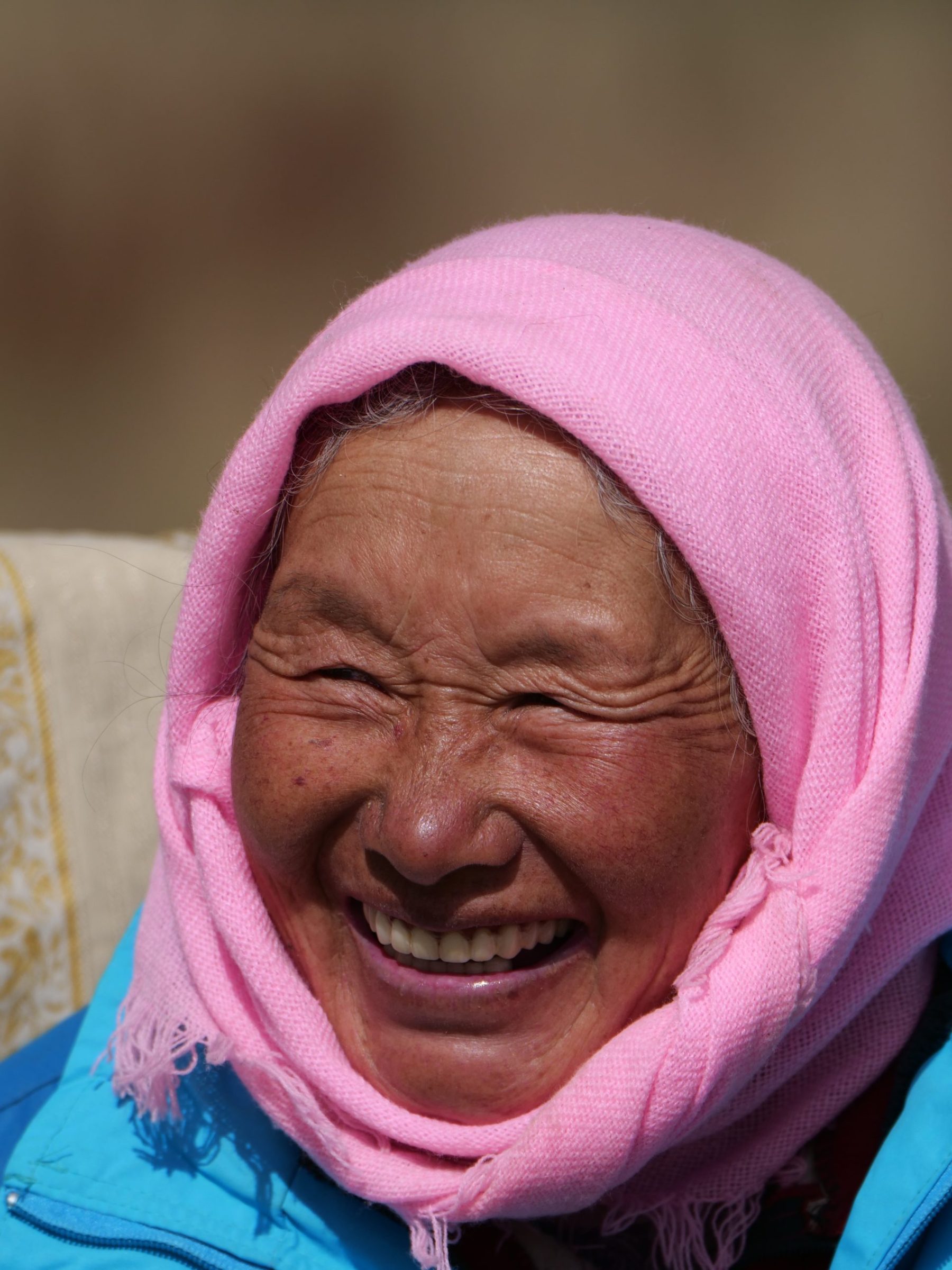It is a great pleasure to encounter a non-gloating, happy person – one who appears comfortable in their own skin, who requires “no particular reason” to be happy, who radiates contentment, is fully alive, and not “on guard”.
Such encounters do not require a common language, nor any words to be spoken.
Typically, no commercial transaction is involved, no contest, no “big event”…
We briefly met this woman and (presumably) members of her family (sons, probably) in the Golmud region of Qinghai on 22 October 2019.
(photo is copyright Doug Spencer)
This area includes some arable places and is relatively low land…in Tibetan Plateau terms.
Although predominantly Tibetan, this area has long also been home to Mongolians.
I was so “unreasonably” pleased to have met this post’s pictured person.
We had not even a mutually understood phrase in common, she had nothing to sell us, she wanted nothing from us, she did not in any sense “pose” for our cameras, but she was not the least bothered by them.
Everybody present enjoyed our unanticipated encounter, and after a few shared minutes, we parted.
As it happens, for those of us lucky enough to live in Australia’s southwestern corner, daily life will become almost “normal” again, after tonight’s midnight.
Accordingly, Pelican Yoga will resume its “normal” state.
The “a shining moment” series will not end, but they will become a part of the menu, not the menu.
Hereon, publication will no longer be on a daily basis, nor will posts adhere to a “one image, plus musical connection” model; Pelican Yoga’s posts will once again adopt more various sizes, shapes and strategies.
—
La Danse du Bonheur was co-authored by its guitarist and violinist – respectively, John McLaughlin and Lakshminarayana Shankar (later known as L Shankar or simply as Shankar)
It first appeared on disc in 1976, on A Handful of Beauty, the second album from Shakti.
The quartet’s other members were, respectively, Hindustani/North Indian and Carnatic/South Indian masters of hand drums – Zakir Hussain and T.H. “Vikku” Vinayakram.
Zakir’s primary instrument is tabla, Vikku’s is ghatam, a clay pot.
In 1999 in Donostia/ San Sebastián (respectively, that city’s Basque and Spanish names) the Remember Shakti quartet delivered a quite different, but equally rewarding version.
This quartet saw Shankar replaced by electric mandolinist U Srinivas (1969-2014), whilst Vikku handed “his” place to his son V Selvaganesh.
Srinivas was at least as phenomenal a string player as Mclaughlin, Django Reinhardt or anyone in history; discover/hear more here.
The video’s quality is generally a deal better than its opening moments herald:
Altogether “lower wattage” and seemingly “unassuming” was the music made by a Mississippi sharecropper who “disappeared” for most of his adult life, after his commercially unsuccessful 1928 record session.
Said recording became legendary, and its maker was rediscovered in 1963.
Mississippi John Hurt (born circa 1893, died 1966) was then around 70 years old, and his quietly gobsmacking musicianship was still intact.
For the final two years of his life Hurt was a “star”, at last.
His name is on any credible list of “greatest blues men”, or of “most influential guitarists”.
And when it comes to making a listener “feel good all over”, neither James Brown nor any other “master of funk” holds a proverbial candle, next to Mississippi John:

Thanks so much Doug for this Shining Moments series! It’s made the past months indeed lighter — meaning, with more light. Xx